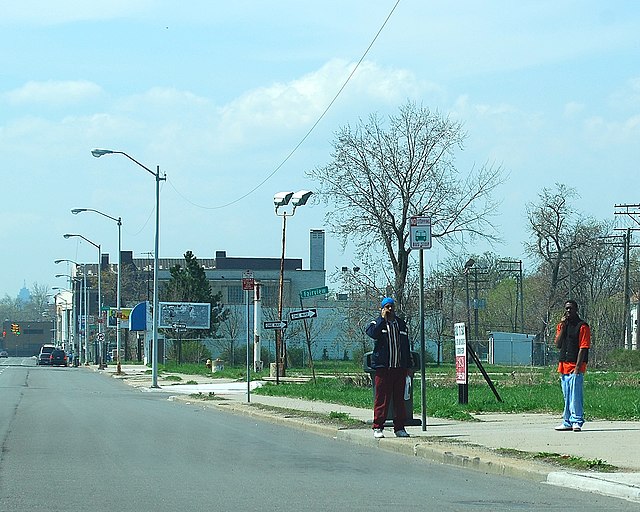Is Nigeria picking a trade war with the U.S.?
In a recent post on X, the U.S. Trade Representative (USTR) raised concerns over Nigeria’s ban on 25 product categories:
“Nigeria’s import ban on 25 different product categories impacts U.S. exporters, particularly in agriculture, pharmaceuticals, beverages, and consumer goods. Restrictions on items like beef, pork, poultry, fruit juices, medicaments, and spirits limit U.S. market access and reduce export opportunities. These policies create significant trade barriers that lead to lost revenue for U.S. businesses looking to expand in the Nigerian market.”
10/10: Nigeria’s import ban on 25 different product categories impacts U.S. exporters, particularly in agriculture, pharmaceuticals, beverages, and consumer goods. Restrictions on items like beef, pork, poultry, fruit juices, medicaments, and spirits limit U.S. market access and…
— United States Trade Representative (@USTradeRep) April 7, 2025
The U.S. sees these policies as barriers to trade. But is Nigeria really engaging in unfair practices—or simply trying to stay afloat?
Understanding Nigeria’s Import Ban
Nigeria’s import restrictions aren’t new. Over the years, the government has banned or restricted the importation of several items in an effort to:
-
Conserve foreign exchange
-
Promote local manufacturing
-
Reduce reliance on imports
The current list includes products like poultry, beef, pork, fruit juices, second-hand clothing, certain medicaments, and alcoholic beverages (full list here).
While this might look like protectionism on the surface, there’s more beneath it.
Is This Retaliation for U.S. Tariffs?
Some observers believe this could be Nigeria’s way of hitting back after the U.S. imposed sweeping tariffs on goods entering the US by the Trump administration. In 2020, Nigeria was listed in the USTR’s National Trade Estimate Report on Foreign Trade Barriers, citing practices that hindered U.S. businesses (source).
Still, Nigeria never officially responded with counter-tariffs or bans specifically targeting the U.S. And these current bans aren’t exclusive to U.S. products—they apply broadly, including to EU and Asian imports.
So while the timing might feel retaliatory, the motivation seems more domestic than diplomatic.
Is This Protectionism to Boost Local Industries?
The Nigerian government has often framed these bans as a way to boost local production. For example, banning imported poultry could, in theory, help local farmers sell more chicken. That’s textbook protectionism—that shields domestic industries from foreign competition.
But here’s the issue: the economy is in no shape to support large-scale local manufacturing.
-
Many manufacturers are struggling with power shortages, high fuel prices, and import costs on raw materials.
-
Local substitutes are often more expensive and less available than the banned imports.
-
Even “Made in Nigeria” goods often rely on imported components.
So while the policy may have the language of protectionism, it doesn’t have the infrastructure to make it work.
The Real Driver: A Broken Economy
Let’s be honest—most Nigerians aren’t importing beef or drinking imported juice because they want to. They’ve stopped because they can’t afford it.
Here’s the bigger picture:
-
The naira has lost massive value against the dollar (Reuters).
-
Inflation is soaring, with food inflation alone topping 30% (TradingEconomics).
-
Purchasing power is collapsing, and basic goods are now luxury items.
So while import bans officially limit U.S. goods, the real limit is affordability. Even if the bans were lifted, most consumers and retailers simply couldn’t buy at scale. That’s why U.S. exports to Nigeria are already declining—not because of politics, but because of poverty.
Does the U.S. Have a Right to Complain?
That depends on your perspective.
-
On one hand, the U.S. provides security assistance, development aid, and trade access to Nigeria. Some argue this gives them leverage to demand fair market access.
-
On the other hand, Nigeria is a sovereign country. It can choose to restrict imports to protect its economy—even if it stings foreign partners.
The U.S. Trade Representative’s job is to advocate for American exporters. But whether their complaint holds weight diplomatically or morally? That’s up for debate.
fixing Nigeria’s economy will do more for both sides than any ban or complaint ever could.
Is This a Trade War in the Making?
Not quite. We’re not in “trade war” territory yet—there are no reciprocal sanctions, formal tariffs, or broken agreements. But it feels like the early stages of economic friction.
And in any trade spat, there are always winners and losers.
-
U.S. businesses lose market access in a key African market.
-
Nigeria risks losing trade relationships and foreign goodwill.
-
But the biggest loser? The Nigerian consumers– caught in the middle with fewer options and rising prices. The ordinary citizens whose take home pay cannot take him home
Final Thoughts: What’s the Way Forward?
Nigeria is facing a complex challenge. It wants to grow local industries, stabilize its currency, and reduce reliance on imports. But doing so by shutting out foreign products without local alternatives hurts both trade partners and its own people.
Meanwhile, the U.S. will keep pushing for fairer access—but they may need to understand that Nigeria’s restrictions are less about diplomacy and more about economic survival.
Trade friction or not, one thing is clear: fixing Nigeria’s economy will do more for both sides than any ban or complaint ever could.
Follow us on Facebook and Instagram for the latest updates and exclusive content!








